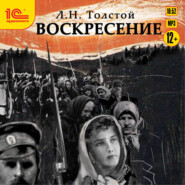По всем вопросам обращайтесь на: info@litportal.ru
(©) 2003-2024.
✖
Tolstoy on Shakespeare: A Critical Essay on Shakespeare
Настройки чтения
Размер шрифта
Высота строк
Поля
Who, with his shears and measure in his hand,
Standing on slippers (which his nimble haste
Had falsely thrust upon contrary feet),
Told of a many thousand warlike French
That were embattailed and rank'd in Kent.
Another lean, unwashed artificer,
Cuts off his tale, and talks of Arthur's death."
(Act 4, Sc. 2.)
Macbeth, while sounding the murderers whom he intends to employ, and who say to him, "We are men, my liege," answers:
"Ay, in the catalogue, ye go for men
As hounds and greyhounds, mongrels, spaniels, curs,
Shoughs, water-sugs, and demi-wolves, are cleped
All by the name of dogs."
(Act 3, Sc. 1.)
As Coriolanus is held up to our view as a pattern of noble bearing toward the people, so Richard II. condemns the courteous behavior of the future Henry IV. on his way into banishment. He says:
"Ourselves, and Bushy, Bagot here and Green
Observed his courtship to the common people;
How he did seem to dive into their hearts
With humble and familiar courtesy;
What reverence he did throw away on slaves;
Wooing poor craftsmen with the craft of smiles
And patient overbearing of his fortune,
As 'twere to banish their effects with him.
Off goes his bonnet to an oyster-wench;
A brace of draymen did God speed him well
And had the tribute of his supple knee,
With 'Thanks, my countrymen, my loving friends.'"
(Richard II., Act 1, Sc. 4.)
The King of France, in "All's Well that Ends Well," commends to Bertram the example of his late father in his relations with his inferiors:
"Who were below him
He used as creatures of another place,
And bowed his eminent top to their low ranks,
Making them proud of his humility
In their poor praise he humbled. Such a man
Might be a copy to these younger times."
(Act 1, Sc. 2.)
Shakespeare had no fondness for these "younger times," with their increasing suggestion of democracy. Despising the masses, he had no sympathy with the idea of improving their condition or increasing their power. He saw the signs of the times with foreboding, as did his hero, Hamlet:
"By the Lord, Horatio, these three years I have taken note of it; the age has grown so picked, that the toe of the peasant comes so near the heel of the courtier, he galls his kibe." There can easily be too much liberty, according to Shakespeare – "too much liberty, my Lucio, liberty" (Measure for Measure, Act 1, Sc. 3), but the idea of too much authority is foreign to him. Claudio, himself under arrest, sings its praises:
"Thus can the demi-god, Authority,
Make us pay down for our offense by weight, —
The words of Heaven; – on whom it will, it will;
On whom it will not, so; yet still 'tis just."
(Ib.)
Ulysses, in "Troilus and Cressida" (Act 1, Sc. 3), delivers a long panegyric upon authority, rank, and degree, which may be taken as Shakespeare's confession of faith:
"Degree being vizarded,
Th' unworthiest shews as fairly in the mask.
The heavens themselves, the planets, and this center,
Observe degree, priority, and place,
Insisture, course, proportion, season, form,
Office and custom, in all line of order;
And therefore is the glorious planet, Sol,
In noble eminence enthroned and sphered
Amidst the other; whose med'cinable eye
Corrects the ill aspects of planets evil,
And posts, like the commandments of a king,
Sans check, to good and bad. But when the planets,
In evil mixture, to disorder wander,
What plagues and what portents! what mutiny!
What raging of the sea, shaking of the earth,
Commotion of the winds, frights, changes, horrors,
Divert and crack, rend and deracinate
The unity and married calm of states
Quite from their fixture! Oh, when degree is shaked,
Which is the ladder of all high designs,
The enterprise is sick. How could communities,
Degrees in schools, and brotherhoods in cities,
Peaceful commerce from dividable shores,
The primogenity and due of birth,
Prerogative of age, crowns, scepters, laurels,
But by degree stand in authentic place?
Take but degree away, untune the string,
And hark, what discord follows! each thing meets
In mere oppugnancy; the bounded waters
Should lift their bosoms higher than the shores,
And make a sop of all this solid globe;
Strength should be lord of imbecility,
And the rude son should strike his father dead;
Force should be right; or, rather, right and wrong,
(Between whose endless jar justice resides)
Should lose their names, and so should justice too.
Then everything includes itself in power.
Power into will, will into appetite;
And appetite, a universal wolf,
So doubly seconded with will and power,
Must make perforce an universal prey,
And last eat up himself. Great Agamemnon,
This chaos, when degree is suffocate,
Follows the choking;
And this neglection of degree it is,
Standing on slippers (which his nimble haste
Had falsely thrust upon contrary feet),
Told of a many thousand warlike French
That were embattailed and rank'd in Kent.
Another lean, unwashed artificer,
Cuts off his tale, and talks of Arthur's death."
(Act 4, Sc. 2.)
Macbeth, while sounding the murderers whom he intends to employ, and who say to him, "We are men, my liege," answers:
"Ay, in the catalogue, ye go for men
As hounds and greyhounds, mongrels, spaniels, curs,
Shoughs, water-sugs, and demi-wolves, are cleped
All by the name of dogs."
(Act 3, Sc. 1.)
As Coriolanus is held up to our view as a pattern of noble bearing toward the people, so Richard II. condemns the courteous behavior of the future Henry IV. on his way into banishment. He says:
"Ourselves, and Bushy, Bagot here and Green
Observed his courtship to the common people;
How he did seem to dive into their hearts
With humble and familiar courtesy;
What reverence he did throw away on slaves;
Wooing poor craftsmen with the craft of smiles
And patient overbearing of his fortune,
As 'twere to banish their effects with him.
Off goes his bonnet to an oyster-wench;
A brace of draymen did God speed him well
And had the tribute of his supple knee,
With 'Thanks, my countrymen, my loving friends.'"
(Richard II., Act 1, Sc. 4.)
The King of France, in "All's Well that Ends Well," commends to Bertram the example of his late father in his relations with his inferiors:
"Who were below him
He used as creatures of another place,
And bowed his eminent top to their low ranks,
Making them proud of his humility
In their poor praise he humbled. Such a man
Might be a copy to these younger times."
(Act 1, Sc. 2.)
Shakespeare had no fondness for these "younger times," with their increasing suggestion of democracy. Despising the masses, he had no sympathy with the idea of improving their condition or increasing their power. He saw the signs of the times with foreboding, as did his hero, Hamlet:
"By the Lord, Horatio, these three years I have taken note of it; the age has grown so picked, that the toe of the peasant comes so near the heel of the courtier, he galls his kibe." There can easily be too much liberty, according to Shakespeare – "too much liberty, my Lucio, liberty" (Measure for Measure, Act 1, Sc. 3), but the idea of too much authority is foreign to him. Claudio, himself under arrest, sings its praises:
"Thus can the demi-god, Authority,
Make us pay down for our offense by weight, —
The words of Heaven; – on whom it will, it will;
On whom it will not, so; yet still 'tis just."
(Ib.)
Ulysses, in "Troilus and Cressida" (Act 1, Sc. 3), delivers a long panegyric upon authority, rank, and degree, which may be taken as Shakespeare's confession of faith:
"Degree being vizarded,
Th' unworthiest shews as fairly in the mask.
The heavens themselves, the planets, and this center,
Observe degree, priority, and place,
Insisture, course, proportion, season, form,
Office and custom, in all line of order;
And therefore is the glorious planet, Sol,
In noble eminence enthroned and sphered
Amidst the other; whose med'cinable eye
Corrects the ill aspects of planets evil,
And posts, like the commandments of a king,
Sans check, to good and bad. But when the planets,
In evil mixture, to disorder wander,
What plagues and what portents! what mutiny!
What raging of the sea, shaking of the earth,
Commotion of the winds, frights, changes, horrors,
Divert and crack, rend and deracinate
The unity and married calm of states
Quite from their fixture! Oh, when degree is shaked,
Which is the ladder of all high designs,
The enterprise is sick. How could communities,
Degrees in schools, and brotherhoods in cities,
Peaceful commerce from dividable shores,
The primogenity and due of birth,
Prerogative of age, crowns, scepters, laurels,
But by degree stand in authentic place?
Take but degree away, untune the string,
And hark, what discord follows! each thing meets
In mere oppugnancy; the bounded waters
Should lift their bosoms higher than the shores,
And make a sop of all this solid globe;
Strength should be lord of imbecility,
And the rude son should strike his father dead;
Force should be right; or, rather, right and wrong,
(Between whose endless jar justice resides)
Should lose their names, and so should justice too.
Then everything includes itself in power.
Power into will, will into appetite;
And appetite, a universal wolf,
So doubly seconded with will and power,
Must make perforce an universal prey,
And last eat up himself. Great Agamemnon,
This chaos, when degree is suffocate,
Follows the choking;
And this neglection of degree it is,

















